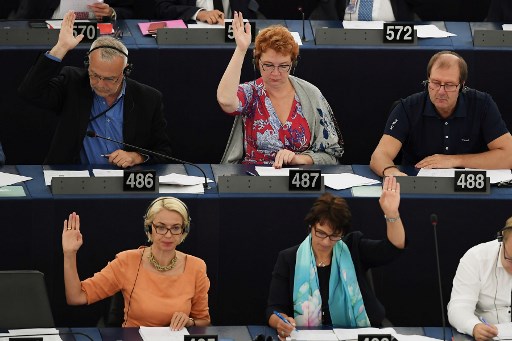EFJ calls on MEPs to support TPWC Directive to protect workers’ rights

UPDATE (15.11.18): the European Parliament voted in favour of the Directive on Transparent and Predictable Working Conditions. Find more information here.
The European Federation of Journalists (EFJ) has today called on Members of the European Parliament to support the draft Directive on Transparent and Predictable Working Conditions to protect the rights of precarious workers across Europe.
On 15th November 2018, the Transparent and Predictable Working Conditions Directive will be voted in the European Parliament. The vote will determine whether the draft Directive can proceed to the next stage of the legislative process giving the European Parliament the mandate to negotiate on the position agreed in the draft with the European Commission and the European Council.
The EFJ believes that the draft Directive is a key step forward to the improvement of the general working conditions of freelance, atypical and precarious workers. It should deserve the support of MEPs. However, the chances that the text will be adopted are far from being certain.
Discussion among the different political groups at the European Parliament has not reached a consensus to give the mandate of the European Parliament to enter into the Trilogue negotiation (with the European Commission and the European Council) to make further progress. The EFJ, together with a coalition of unions lead by the European Trade Union Confederation (ETUC) are very concerned about the current development. They called on MEPs to vote in favour of the current draft Directive.
If the vote on Thursday rejected the mandate of the European Parliament, the Directive will fall, damaging the credibility of the Social Pillar.
“This proposal is one of the key legislative measures under the European Pillar of Social Rights. It is a crucial piece of social legislation for Europe as it is setting out new EU rules to protect Europe’s most vulnerable workers, in particular those that do not have stable or permanent employment. It will set a threshold of decency for all workers regardless of their employment contract or number of hours worked,” stated Esther Lynch, ETUC Confederal Secretary.
“All workers, regardless of their employment status shall be entitled to the same rights and decent working conditions. This draft is trying to do just that and correct the legislative gap and injustice existing in the labour market,” said Ricardo Gutiérrez, EFJ General Secretary. “We cannot imagine some MEPs are trying to block this draft Directive.”
The TPWC Directive includes some pivotal achievements to improve freelance and non-traditional form of workers’ status, such as:
- Better transparency of the employment contracts. The essential information on the employment relationship must be provided on the first day of work including its duration, notice periods, trainings, bonuses and initial basic salary.
- Better security and stability. Employers will be legally required to give workers who request more hours or different working time due consideration and a reasoned reply. Workers should be also informed about guaranteed paid hours, the remuneration for work performed in addition to those guaranteed hours and be able to seek additional employment.
- Employers will no longer be able to charge workers for the training requested by the job. Additionally, this training should be completed within working hours and count as working time.
Photo Credit: FREDERICK FLORIN/AFP






